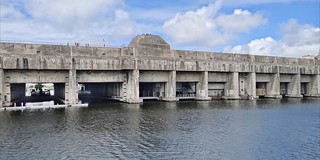Has the Spanish National Police really turned 200 years old? Some historical data
Last weekend, the National Police Corps (CNP) of Spain celebrated the official events of its bicentennial, with 100 flag raising.
The National Police as successor to the Kingdom General Police
In its official account, the National Police (as it is commonly known) noted these words from his deputy operational director (DAO): "the history of the National Police is the uninterrupted contribution of men and women who have wanted to make Spain a better country". There is some controversy surrounding this bicentennial, especially within the Civil Guard, which in 2019 celebrated its 175th anniversary. This bicentennial of the National Police would imply that the CNP is older than the Civil Guard. Is this true true?
The initiative to celebrate this bicentennial arose from the Pedro Sánchez government in the summer of 2022, when the BOE published a provision of the Ministry of the Presidency creating and regulating the commission to celebrate that anniversary. The text established the origin of the National Police on January 13, 1824, the date of the founding of the Kingdom General Police by order of the then King of Spain Ferdinand VII. Obviously, that police force was not called the same as the CNP, but the government placed its "historical antecedent" in that General Police of the Kingdom. Here we find the first fact to take into account: the Civil Guard has been called that way since its foundation, but the CNP is establishing its origins in a body that was called something else.
This would not entirely be an objection to celebrating that bicentennial. After all, there are several Spanish military units that trace their origin to units that were called something else. This is the case, for example, of the "Immemorial del Rey" Regiment No. 1 of the Army or the Marine Infantry. The difference is that those and other units have maintained continuity over time. Does this characteristic occur in the case of the National Police? On the other hand, is it desirable to place the origin of the National Police in the Kingdom General Police?
The Kingdom General Police and its criticized work
The Madrid Gazette, predecessor of the BOE, sheds some light on the matter in its issue of October 24, 1833 (see PDF). Fernando VII had died on September 29 of that year, leaving his wife, María Cristina de Borbón-Dos Sicilias, as regent of the Kingdom. On the second page of that issue of La Gaceta de Madrid appears the following Royal Order of the Ministry of General Development of the Kingdom:
"Her Majesty the Queen Governor wanting that the general police of the kingdom be limited to the limits from which it should never have left: that when exercising its surveillance over some it does so only in the interest of the safety of all; and that, instead of an instrument of humiliation, it be a means of government, and therefore an element of protection, it has been useful to order, in the name of the Queen, Our Lady Doña Isabel II, that Your Majesty immediately do review and recast in this sense the regulations of the branch, eliminating from them all exorbitant precautions, all vexatious formalities, all obstacles, in short, that are not absolutely required by the need to preserve order and ensure general rest."
This text evidenced the abuses committed by the General Police of the Kingdom, which had been acting as a political police, as pointed out by Captain (R) of the Civil Guard José Luis Borrero in an article published in Benemérita al Día. This is evidenced, as this author points out, the issue of La Gaceta de Madrid of August 18, 1827 published some Royal Decrees whose Article 20 attributed the General Police of the Kingdom as exclusive competence "< strong>surveillance inside and outside the Kingdom in conspiracies against the legitimate order and security of the State."
The Kingdom General Police was dissolved 9 years after its founding
Captain Borrero points out about this political work of the General Police of the Kingdom: "90% of their services were of this nature. So much damage was caused to the society of the time, that it was never called again. a public security institution with the name of Police until 1908, that is, 73 years had to pass, and why? The answer is very simple, it was bad to burst."As for to continuity, and as Captain Borrero points out, La Gaceta de Madrid of October 5, 1833 published a Royal Decree stating "the uselessness of the general superintendence of police". With this name it referred to the General Police of the Kingdom, pointing out the following in its Article 1:
"As of the publication of this decree, the general police superintendence, created by virtue of the decree of January 8, 1824, is abolished."
About the General Police of the Kingdom, in January 2022 José María Fernández wrote an interesting article in El Cierre Digital, in which he indicated the following:
"While it is true that the General Police of the Kingdom initially constituted a promising and significant advance with respect to the rest of the public security institutions that had existed until that date, its profile was so damaged "secret" police and his excessive political involvement with some of the governments under which he served."
Fernández points out that this police force was "the object of very harsh reproaches by the governments that succeeded those who had made abusive use of its capabilities, being finally condemned to its definitive abolition."
The police forces created after the dissolution of the General Police of the Kingdom
The void left by the General Police of the Kingdom in terms of security was covered in 1844 by the Civil Guard. In 1852 the Protection and Security Corps appeared, a government police divided into two branches: the Security Corps, with uniformed agents, and the Surveillance Corps, with plainclothes agents. In 1932, during the Second Republic, the Assault Guard was formed, dissolved in 1940.
Already during the Franco regime, in 1941 the Armed Police was formed, with uniformed agents. It was dissolved in 1978 and replaced by the National Police Corps. Furthermore, in 1941 the General Police Corps was formed, which inherited the functions of the Surveillance Corps. In 1978 it was renamed the Superior Police Corps. In 1986, the General Police Corps and the Superior Police Corps merged into the current National Police Corps.
These are the historical facts. Based on them, it can be affirmed that the oldest Spanish police force is the Civil Guard, founded in the beginning with that name and which has continued over time to the present day. The Kingdom General Police may be an antecedent of the National Police, but its foundation cannot be established in it, having been dissolved only 9 years after its creation and having a very different character from that of the CNP. It is worth asking what the government was thinking when it set out to organize this bicentennial. Of course, the anger within the Civil Guard about this is logical. And I say this from my deep respect and admiration for both the Civil Guard and the National Police, two corps of which as a Spaniard I feel proud.
---
Photo: Policía Nacional.
|
Don't miss the news and content that interest you. Receive the free daily newsletter in your email: |
- Most read
- The United States Army shows its electric bicycles for reconnaissance missions
- NATO highlights and shows the 'air power' of the Spanish aircraft carrier 'Juan Carlos I'
- The firearms used by the Pontifical Swiss Guard, the smallest army in the world
- Eurofighter vs F-35: the opinions of professional pilots on these advanced fighters
- The sad aspect that the aircraft carrier USS Kitty Hawk offers in its scrapping process
- The military salute: origin, types & curiosities
- The brutal 'touch and go' of a Lufthansa Boeing 747 at Los Angeles Airport

 ES
ES







Opina sobre esta entrada: